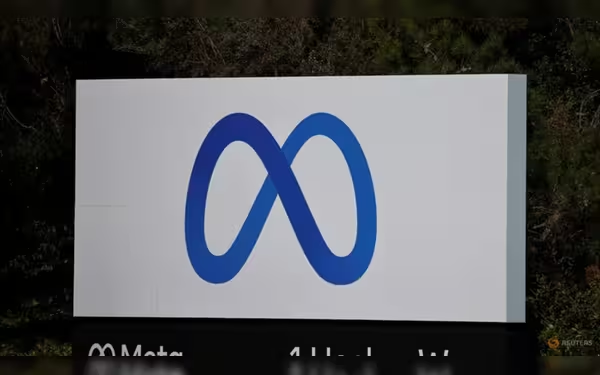Sunday, June 30, 2024 06:56 PM
Legal Battle Between Software Engineer and Meta Platforms Reignited
- 9th Circuit Court ruling reignites legal battle over discriminatory hiring practices
- Meta Platforms accused of favoring foreign workers over American employees
- Significant implications for tech industry's struggle against bias in hiring practices
 Image Credits: channelnewsasia
Image Credits: channelnewsasiaA recent ruling by the 9th U.S. Circuit Court of Appeals has reignited a legal battle between a software engineer and Meta Platforms over discriminatory hiring practices favoring foreign workers. The lawsuit highlights the ongoing struggle in the tech industry against bias in hiring practices, potentially setting a precedent for future legal battles.
A recent ruling by the 9th U.S. Circuit Court of Appeals has reignited a legal battle between a software engineer and Meta Platforms, the parent company of Facebook, Instagram, and WhatsApp. The lawsuit, brought by Purushothaman Rajaram, a naturalized U.S. citizen, alleges that Meta engaged in discriminatory hiring practices that favored foreign workers over American employees.
Rajaram claims that Meta's preference for cheaper visa holders resulted in American workers being overlooked for employment opportunities within the company. The court's decision to overturn the dismissal of the case is based on the argument that such discrimination against U.S. citizens violates the Civil Rights Act of 1866.
This development is significant in the tech industry's ongoing struggle to address bias against American workers. The ruling may pave the way for more legal challenges aimed at combating similar discriminatory practices in the workforce. The interpretation of Section 1981 of the Civil Rights Act of 1866, which prohibits discrimination in contracts based on alienage, has been a contentious issue among different circuit courts.
The disagreement between the 9th Circuit and the 5th Circuit on this matter could lead Meta Platforms to appeal the decision, potentially escalating the case to the U.S. Supreme Court. Conservative groups have increasingly used Section 1981 to contest diversity initiatives and hiring practices that allegedly favor foreign workers over American citizens.
Unlike Title VII of the Civil Rights Act of 1964, Section 1981 does not impose limits on damages for successful plaintiffs and does not require filing complaints with government agencies before litigation. The 9th Circuit's ruling has broad implications for cases involving bias against U.S. workers, particularly in the states under its jurisdiction.
Recent legal actions against other tech giants like Apple and Tyson Foods underscore the ongoing debate surrounding fair hiring practices and discrimination in the workplace. The outcome of the lawsuit against Meta Platforms could establish a precedent for future legal battles addressing similar issues in the tech industry and beyond.













